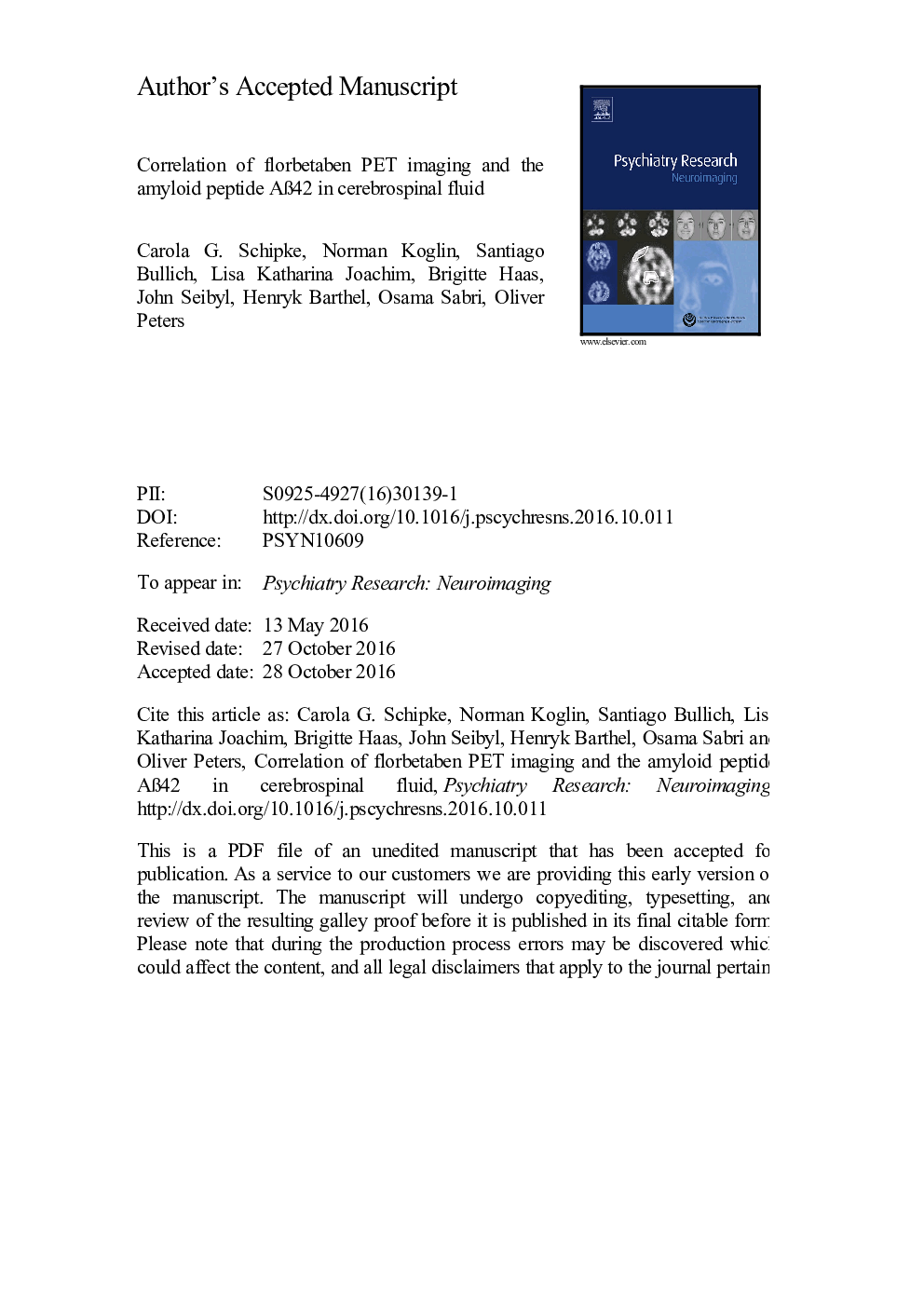| Article ID | Journal | Published Year | Pages | File Type |
|---|---|---|---|---|
| 4933904 | Psychiatry Research: Neuroimaging | 2017 | 11 Pages |
Abstract
Today, the use of biomarkers such as amyloid-specific positron emission tomography (PET) tracers and information derived from cerebrospinal fluid (CSF) can support the diagnosis of Alzheimer's disease (AD) as an indicator for the presence of amyloid pathology. We here show that the PET signal of the 18F-labelled tracer florbetaben (NeuraCeqâ¢), that binds to amyloid-beta plaques, inversely correlates with CSF levels of AÃ42, another biomarker for AD. Results from the two biomarkers were concordant in 35 out of 38 subjects. In 7 AD subjects (20%) at least one biomarker was inconsistent with the clinical diagnosis. This confirms known limitations of the clinical AD diagnosis and highlights the potential of biomarker-assisted diagnosis to improve accuracy.
Related Topics
Life Sciences
Neuroscience
Biological Psychiatry
Authors
Carola G. Schipke, Norman Koglin, Santiago Bullich, Lisa Katharina Joachim, Brigitte Haas, John Seibyl, Henryk Barthel, Osama Sabri, Oliver Peters,
